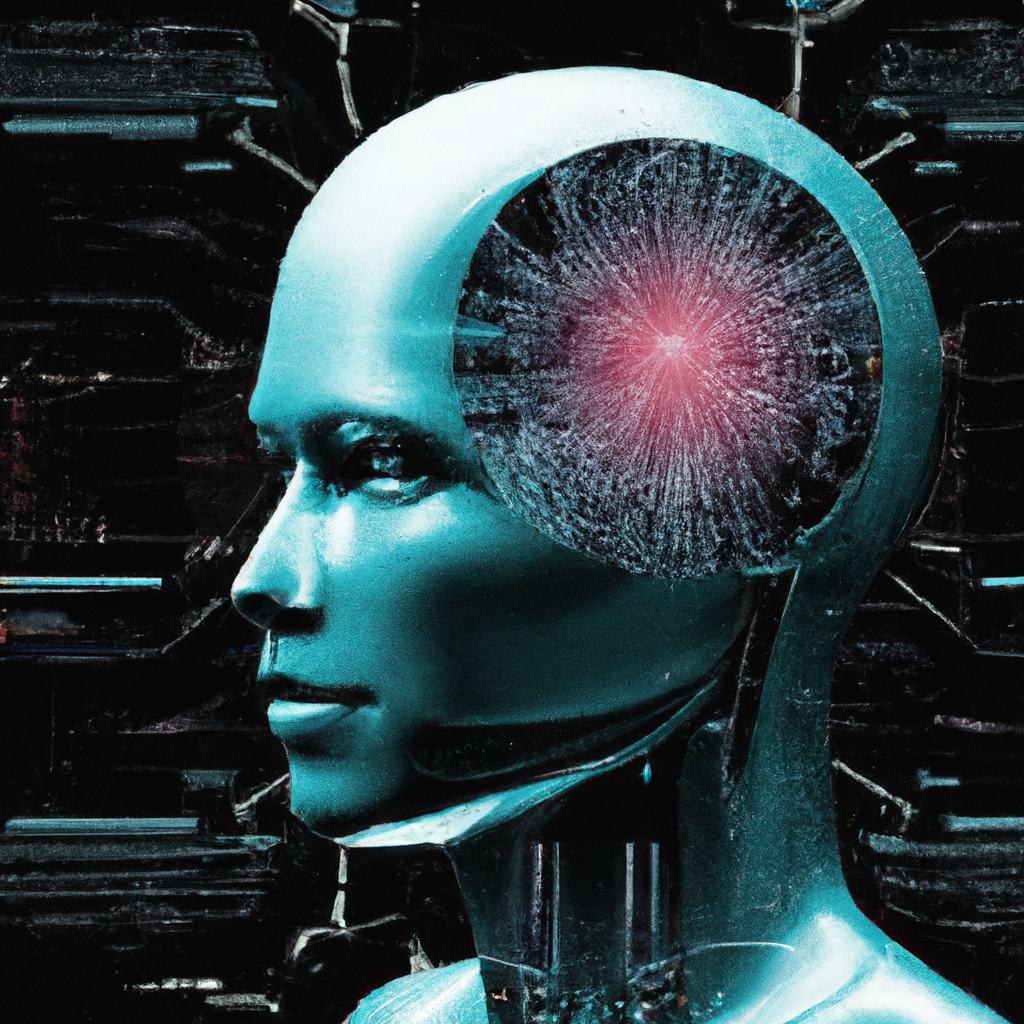Imagine a future where artificial intelligence (AI) plays a crucial role in our daily lives. From self-driving cars to smart homes, this technology has the potential to transform the way we live, work, and interact with the world. But the question that lingers in our minds is, are we truly ready for AI? As this cutting-edge technology continues to advance at a rapid pace, it’s time for us to consider the implications, both positive and negative, and prepare ourselves for the inevitable integration of AI into our society.
The Benefits of AI
Enhanced Efficiency and Productivity
AI technologies have revolutionized industries by significantly enhancing efficiency and productivity. With AI-powered automation, businesses can streamline complex processes, reducing the time and effort required to complete tasks. By automating repetitive and mundane tasks, employees can focus on more value-added activities, leading to increased productivity and innovation.
Improved Accuracy and Precision
One of the major advantages of AI is its ability to process vast amounts of data quickly and accurately. AI algorithms can analyze data with great precision and identify patterns that may not be detectable by humans. This enhanced accuracy can be particularly beneficial in fields such as healthcare and finance, where errors can have serious consequences.
Cost Reduction
AI technology can lead to substantial cost savings for organizations. By automating tasks that were previously performed by humans, businesses can reduce labor costs, minimize errors, and optimize resource allocation. Additionally, AI can help organizations identify areas where inefficiencies exist, allowing them to make data-driven decisions that ultimately lead to cost reductions.
Automation of Repetitive Tasks
AI allows for the automation of repetitive tasks that don’t require complex decision-making, freeing up human workers to focus on more creative and strategic activities. This automation not only increases efficiency but also reduces the chances of human error. Tasks such as data entry, customer support, and inventory management can be handled by AI systems, allowing employees to devote their time to more meaningful and challenging work.
The Concerns Surrounding AI
Job Displacement
One of the main concerns surrounding AI is the potential displacement of jobs. As AI technologies become more advanced and capable of performing complex tasks, there is a fear that many jobs will be rendered obsolete. However, it is important to note that while some jobs may indeed be replaced by AI, new jobs will also be created to support and develop AI technologies. It is crucial for individuals to adapt their skills and acquire new ones to remain relevant in the job market.
Ethical and Social Implications
The widespread adoption of AI raises important ethical and social implications. AI systems make decisions based on algorithms and data, which can inadvertently perpetuate biases and discrimination. For example, facial recognition technology has been criticized for its potential to misidentify individuals based on their race or ethnicity. It is essential to address these ethical concerns and ensure that AI technologies are developed and used in a fair and unbiased manner.
Lack of Transparency and Trustworthiness
AI systems often operate as black boxes, making it difficult to understand how decisions are reached. This lack of transparency can raise concerns about accountability and trustworthiness. To address this issue, there is a need for increased transparency in the development and operation of AI systems. Organizations should strive to provide explanations and justifications for the decisions made by AI algorithms to instill trust in their technology.

Ethical Considerations in AI Development
Human Bias in AI
AI systems learn from vast amounts of data, which can include biases present in society. If these biases are not addressed, AI systems can perpetuate and even amplify discrimination. It is crucial to develop AI algorithms that are trained on diverse and unbiased datasets to prevent the perpetuation of biases. Moreover, ongoing monitoring and evaluation of AI systems are necessary to ensure that any biases detected are addressed promptly.
Privacy and Data Security
AI technologies rely heavily on data, often requiring access to personal and sensitive information. This raises concerns about privacy and data security. Organizations must prioritize the protection and secure handling of data to prevent unauthorized access or misuse. Additionally, individuals should be given control and transparency over how their data is used by AI systems, ensuring their privacy is respected.
Accountability and Responsibility
As AI systems become more advanced and autonomous, questions surrounding accountability and responsibility arise. It is important to establish clear guidelines and regulations regarding the use of AI technologies to determine who is responsible for the actions and decisions made by AI systems. Organizations should also consider implementing mechanisms to attribute accountability and ensure appropriate oversight of AI systems to mitigate potential risks.
AI in Healthcare
Improved Diagnostics
AI has the potential to significantly enhance diagnostic capabilities in healthcare. Through the analysis of vast amounts of patient data, AI algorithms can identify patterns and detect subtle anomalies that may indicate the presence of diseases or conditions. This can lead to earlier detection and intervention, improving patient outcomes and potentially saving lives.
Drug Discovery and Development
AI can expedite the process of drug discovery and development by analyzing large datasets and conducting virtual simulations. AI algorithms can identify potential drug candidates with higher accuracy and efficiency, reducing the time and cost associated with traditional methods. This has the potential to accelerate the availability of new medications and treatments.
Personalized Medicine
AI technology enables personalized medicine by analyzing individual patient data and tailoring treatment plans to specific characteristics and needs. This personalized approach can lead to more effective and precise treatments, minimizing side effects and increasing patient satisfaction. AI can also assist in predicting patient outcomes, enabling healthcare professionals to make informed decisions about treatment strategies.

AI in Education
Adaptive Learning
AI-powered adaptive learning systems can personalize educational experiences for students. By analyzing individual learning patterns and progress, AI algorithms can provide targeted feedback and adapt instructional content to suit the needs of each student. This promotes individualized learning and helps students grasp concepts more effectively.
Virtual Teaching Assistants
AI-powered virtual teaching assistants can support educators by providing real-time assistance and guidance to students. These assistants can answer questions, provide explanations, and offer additional resources to aid student learning. This technology enhances the learning experience by providing personalized and immediate support, ultimately improving student engagement and outcomes.
Personalized Education Paths
AI enables the development of personalized education paths for students. By analyzing student data and performance, AI algorithms can identify areas where additional support is needed and recommend appropriate learning paths. This tailoring of educational content ensures that students receive instruction that is aligned with their abilities and facilitates their overall academic growth.
AI in Transportation
Autonomous Vehicles
AI plays a crucial role in the development of autonomous vehicles, which have the potential to revolutionize transportation. AI algorithms enable self-driving cars to analyze their surroundings, make decisions, and navigate safely. Autonomous vehicles have the potential to reduce accidents, congestion, and transportation costs, while improving efficiency and accessibility.
Traffic Optimization
AI-powered traffic optimization systems can analyze real-time data to optimize traffic flow, reduce congestion, and minimize travel times. By analyzing factors such as traffic volumes, road conditions, and historical data, AI algorithms can suggest optimal routes and make dynamic adjustments to traffic signals. This leads to smoother traffic operations, improved fuel efficiency, and reduced environmental impact.
Predictive Maintenance
AI can facilitate predictive maintenance in transportation systems. By analyzing data from sensors and existing maintenance records, AI algorithms can identify potential equipment failures or maintenance needs before they occur. This allows for proactive maintenance scheduling, minimizing the risk of unexpected breakdowns and reducing maintenance costs.

AI in Finance
Fraud Detection and Prevention
AI technologies have significantly improved fraud detection and prevention in the financial industry. AI algorithms can analyze large volumes of data in real-time, detecting patterns and anomalies that may indicate fraudulent activities. By identifying suspicious transactions and behavior, AI helps financial institutions prevent fraud and protect customer assets.
Algorithmic Trading
AI-powered algorithms have transformed the financial markets by enabling algorithmic trading. AI algorithms quickly analyze vast amounts of market data and make trading decisions based on predefined rules and strategies. This automated trading process improves efficiency, reduces human error, and allows for the execution of trades at high speeds.
Robo-Advisors
AI-powered robo-advisors have become popular in the financial industry for providing automated investment advice and portfolio management. These advisors use AI algorithms to analyze individual investor goals, risk tolerance, and market conditions to recommend customized investment strategies. Robo-advisors provide affordable and accessible financial advice, making investment management more accessible to a wider range of individuals.
AI in Customer Service
Chatbots and Virtual Assistants
AI-powered chatbots and virtual assistants have transformed the customer service landscape. These technologies can handle customer inquiries, provide assistance, and even resolve issues without human intervention. Chatbots can engage in natural language conversations, offering real-time support and saving customer service resources.
Personalized Customer Experience
AI enables organizations to deliver personalized customer experiences by analyzing customer data and preferences. By understanding individual customer needs, AI algorithms can tailor product recommendations, marketing messages, and offers specifically to each customer. This enhances customer satisfaction, improves loyalty, and drives business growth.
Predictive Customer Analytics
AI-powered predictive analytics can anticipate customer behavior and preferences, helping organizations make data-driven decisions. By analyzing historical data, AI algorithms can identify patterns and trends, enabling organizations to anticipate customer needs, personalize marketing strategies, and optimize pricing and promotion strategies.

Cybersecurity Challenges in the AI Era
Sophisticated Attacks
The proliferation of AI technologies has led to the development of sophisticated cyberattacks. AI-powered attacks can analyze large amounts of data and adapt their tactics to bypass traditional security measures. Organizations must be prepared to defend against these advanced threats by utilizing AI-based security solutions and constantly updating and improving their cybersecurity strategies.
AI-powered Cyberthreats
AI technologies can be exploited by cybercriminals to launch attacks. Malicious actors can use AI algorithms to automate attacks, quickly identify vulnerabilities, and evade security measures. It is essential for organizations to develop robust cybersecurity measures that can detect and mitigate AI-powered cyberthreats effectively.
Defending against Adversarial Attacks
Adversarial attacks exploit vulnerabilities in AI systems by manipulating inputs to fool the algorithms and produce incorrect outputs. These attacks can have serious consequences in sectors such as healthcare and finance. Organizations need to invest in robust defenses, including AI-powered detection systems, to protect against adversarial attacks and ensure the integrity and reliability of AI systems.
Preparing for the Future of AI
Investing in AI Education and Skills
To fully harness the potential of AI, it is essential to invest in AI education and skills development. Organizations should provide training and resources to help employees develop the necessary expertise to work alongside AI technologies. Additionally, educational institutions should incorporate AI-related courses and programs to equip students with the skills needed for future AI-driven industries.
Establishing Ethical Guidelines and Regulations
To address the ethical concerns surrounding AI, it is crucial to establish clear guidelines and regulations that govern its development and use. These guidelines should address issues such as transparency, accountability, bias mitigation, and privacy protection. By establishing ethical standards, organizations can ensure responsible and ethical AI practices across industries.
Collaboration between Humans and AI
The future of AI lies in collaboration between humans and AI systems. Rather than viewing AI as a replacement for human workers, it should be seen as a tool to augment human capabilities. By leveraging the strengths of both humans and AI, organizations can achieve greater efficiency, productivity, and innovation. Promoting collaboration and knowledge-sharing between humans and AI will be crucial for maximizing the benefits of AI in various domains.
In conclusion, AI has the potential to revolutionize industries and improve various aspects of our lives. From enhanced efficiency and productivity to personalized medicine and improved customer experiences, the benefits of AI are vast. However, concerns surrounding job displacement, ethical implications, and cybersecurity challenges must be carefully addressed. By investing in AI education, establishing ethical guidelines, and fostering collaboration between humans and AI, we can prepare for the future of AI and harness its potential for the betterment of society. Are we ready for AI? With the right approach, preparation, and consideration for the ethical implications, we can embrace AI and its transformative power.










